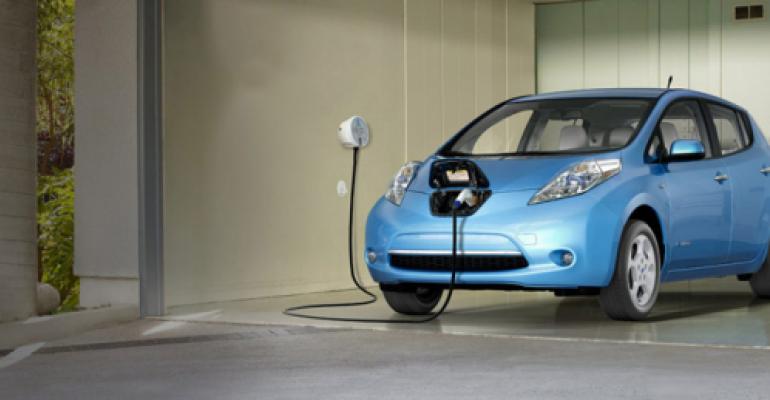More affordable electric vehicles soon may be possible, thanks to a new process that significantly cuts the production costs of electrode materials used in lithium-ion battery cells.
Larry Thomas, CEO of Primet Precision Materials, claims his company's NanoScission technology lowers the cost of materials used to coat battery electrodes.
“That's a game-changer,” he says. “Primet's process lowers that cost barrier. It will help put electric vehicles on the same playing field as traditional vehicles from a price standpoint.”
Nanoparticles used in coating electrodes are the most expensive material used in battery-pack cells, according to Thomas.
The NanoScission process produces a powder that battery manufacturers turn into a slurry used to coat copper or aluminum foil used to make electrodes. “We believe we have the lowest-cost process for making high-performance electrode powders,” Thomas tells WardsAuto in an email.
“This would result in dramatic improvements in the cost and performance of batteries, and thus significant expansion of the battery market via widespread adoption in electric vehicles.”
He also claims NanoScission can cut capital and operating costs for producing electrodes by up to 85%. This can translate into saving more than $50 million on the cost of building a “world-scale” plant and more than $10 million in annual operating costs, Thomas says.
Primet is offering a licensing package capable of producing 300 tons (272 t) of electrode materials annually for immediate use. Thomas says that's enough to make 30,000 Toyota Prius battery packs. He claims the payback period is only two years.
The Primet process could be worth as much as $2,000 per vehicle for an EV with a 25-kWh pack, about the approximate capacity of the pack in a Nissan Leaf. Some companies have estimated Primet's technology could result in reducing the cost of battery packs by up to $100 per kWh.
Thomas says Primet, which is based in Ithaca, NY, does not plan to produce the powders itself, but seeks to license its process to battery makers. “We have had many discussions with interested parties, but can't comment on the status due to confidentiality restrictions.”





